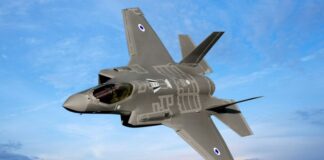Julia Gillard has mounted a vicious attack on WikiLeaks founder, Julian Assange, echoing the line of the US administration that he is a criminal. Both Gillard and her Attorney General, Robert McClelland, repeatedly claimed that publishing the leaked classified documents was “an illegal act.”
McClelland even suggested that Assange’s Australian passport could be cancelled. Gillard then asked the Australian Federal Police (AFP) to conduct an investigation into Assange to see if they could charge him under Australian law. Although the AFP has found nothing to charge him with, the prime minister has not relented.
In early December Assange responded to Gillard’s hypocrisy asking, “has there been any response from the Australian government to the numerous public threats of violence against me and other WikiLeaks personnel?…One would have thought an Australian prime minister would be defending her citizens against such things, but there have only been wholly unsubstantiated claims of illegality.”
Gillard’s moral outrage is a product of her concern to cover up revelations about her government’s aggressive foreign policy and its collusion with the US.
According to one leaked document from March 2009, US Secretary of State, Hillary Clinton, queried then Prime Minister, Kevin Rudd, about his stance towards China. Rudd responded that although China needed to be integrated into the international community the US should be “preparing to deploy force if everything goes wrong.” Australia’s planned naval buildup was “a response to China’s growing ability to project force”, he said.
Equally damning were revelations that former Labor leader, Kim Beazley, had assured US diplomats that Australia would provide military support to America in the event of a war with China. A classified US cable revealed Beazley’s comments were in line with the position in Washington: “In the event of a war between the United States and China, Australia would have absolutely no alternative but to line up militarily beside the US. Otherwise the alliance would be effectively dead and buried, something that Australia could never afford to see happen.”
But the Australian government’s attachment to the US alliance is motivated not by slavishness, but in its own imperialist ambitions.
Australia’s regional ambitions
Since the earliest colonial days successive Australian governments have aggressively backed their own wealthy elite to exploit the people and resources in the Asia-Pacific region. The attempt to annex eastern New Guinea in 1883 and the later enslavement of Solomon Islanders to work in Queensland cane fields were early examples. More recently the Howard government was accused by the Timor Sea Justice Coalition of behaving like “a brutal coloniser” in its appropriation of the bulk of Timor’s offshore gas reserves.
Australia has always relied on the support of one of the major imperialist powers for the military muscle to back up its own domination of the immediate region. Up until the mid-1940s Australia’s loyalty lay with Britain. More recently Australian governments have worked hard for a place under the American military umbrella. In exchange, Australia offers its services as a military watchdog in the region and throws its full weight behind US foreign policy.
But the Australian ruling class is no puppet of Washington. The partnership exists because it serves the interests of both countries—in the Asia-Pacific and further abroad. In 1991 Prime Minister Bob Hawke lobbied fiercely in Washington for Australian involvement in the first US invasion of Iraq. The Age explained his motivation, “BHP stands poised to capitalise on the Persian Gulf crisis after reporting that its crude oil production…was twice that of a year ago.”
China’s rising economic influence challenges American supremacy. The US is increasingly using its military might to box the Asian giant in, limiting opportunities for China to develop trade and diplomatic ties with its neighbours. The US has bases spread throughout Asia and the Pacific for this very reason.
Gillard recently agreed to allow an expansion of US military bases in Australia. Clearly the Labor government understands that supporting the pre-eminent global power is the best way to ensure the stake of the Australian ruling class in the region.
Likewise, Kevin Rudd’s 2009 Defence White Paper committed $100 billion to military expansion—sending a message that Australia intends to be both a major player and a capable junior partner to the US in the South Pacific.
With the Australian ruling class open to the prospect of war with China to maintain their own influence, demanding the closure of all US bases in Australia and the withdrawal of troops from Afghanistan is a crucial step in preventing future wars.
Carl Taylor





